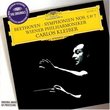| All Artists: Claude Debussy, Jacques Ibert, Camille Saint-Saens, Charles Münch, Boston Symphony Orchestra, Berj Zamkochian, Bernard Zighera, Leo Litwin Title: Saint-SaŽns: Symphony No.3/Debussy: La Mer/Ibert: Escales Members Wishing: 2 Total Copies: 1 Label: RCA Original Release Date: 1/1/1956 Re-Release Date: 3/9/1993 Genre: Classical Styles: Historical Periods, Modern, 20th, & 21st Century, Romantic (c.1820-1910), Symphonies Number of Discs: 1 SwapaCD Credits: 1 UPC: 090266150021 |
Search - Claude Debussy, Jacques Ibert, Camille Saint-Saens :: Saint-SaŽns: Symphony No.3/Debussy: La Mer/Ibert: Escales
 | Claude Debussy, Jacques Ibert, Camille Saint-Saens Saint-SaŽns: Symphony No.3/Debussy: La Mer/Ibert: Escales Genre: Classical
Recorded in 1956 (Debussy, Ibert) and 1959 (Saint-Saëns), these jewels from stereo's golden age, all Munch specialities, receive their finest transfers yet. Close use of the microphone suits Munch's La Mer, a seasca... more » ![header=[] body=[This CD is available to be requested as disc only.]](/images/attributes/disc.png?v=430e6b0a) ![header=[] body=[This CD is available to be requested with the disc and back insert.]](/images/attributes/disc_back.png?v=430e6b0a) ![header=[] body=[This CD is unavailable to be requested with the disc and front insert at this time.]](/images/attributes/greyed_disc_front.png?v=430e6b0a) ![header=[] body=[This CD is unavailable to be requested with the disc, front and back inserts at this time.]](/images/attributes/greyed_disc_front_back.png?v=430e6b0a) |
Larger Image |
CD DetailsSynopsis
Amazon.com Recorded in 1956 (Debussy, Ibert) and 1959 (Saint-Saëns), these jewels from stereo's golden age, all Munch specialities, receive their finest transfers yet. Close use of the microphone suits Munch's La Mer, a seascape illuminated in primary colors rather than conventional pastels. Ibert's colorful Escales ("Ports of Call") gets an intense, bracing reading, and so does the Saint-Saëns. Recorded balance in the latter's third movement, though, is distorted and fuzzy during loud tuttis when the organ and orchestra kick in simultaneously. And one might desire more contrasted dynamics and articulation in the finale's fugal build-up. But don't let tiny blemishes like these deter you from buying this lovable disc. --Jed Distler Similar CDsSimilarly Requested CDs
|
CD ReviewsSheer power combined with refinement J. Buxton | Waltham, MA United States | 03/04/2001 (5 out of 5 stars) "This recording was a remarkable achievement when it was released in the 1950's, and it is no less amazing today. The engineers had everything going for them: the marvelous Symphony Hall acoustics in Boston; the world's foremost conductor of French music at the time, Charles Munch; and the BSO in their glory days. The balance found between organ and orchestra is ideal and while the most obvious place to notice this is in the final movement, you can also hear the organ details extraordinarily well in the first and second movements. The whole symphony, from first to last, moves along as if it has a wonderful purpose. It is difficult for me to find any fault in this performance or recording. I'm not absolutely convinced it is the finest in the catalogue, as I really love Paray's account with the Detroit Symphony on Mercury from the same time period which can boast even more powerful organ sound and a bit more bite in final movement. However, the Detroit orchestra cannot match the BSO for beauty of sound and refinement. The Debussy and Ibert couplings are also superbly performed if not as gloriously recorded. Again, Munch's interpretations of these French gems are unbeatable." Magnificent Recording rodboomboom | Dearborn, Michigan United States | 04/30/2001 (5 out of 5 stars) "One learns why a CD such as this is listed as "an essential." The quality of the recording is so well balanced. The Saint-Saens Organ Symphony is magnificent. The organ is delicately used in all its majesty and capabilities. It swells and then withdraws behind the orchestra only to swell again above it.Debussey's LaMer is wonderful sounds, roaring and thundering and then backing off into tranquility shimmering. I guess I'm hooked on water music, as this and Smetana's Moldau are among my favorites. I so appreciate those who recommed this as an essential. It certainly has become that in my collection." Possibly the gretest Recording of the Organ Symphony Ever!!! Timothy Kearney | Hull, MA United States | 08/13/2004 (5 out of 5 stars) "During the tenure of Charles Munch, the Boston Symphony Orchestra became known for its mastery of the French repertoire. This recording contains three pieces from different French composers and demonstrates the orchestra's expertise of French classical music. The pieces are somewhat broad in scope. The major work is Saint-Sean's Symphony #3. The work is grand in scale and is in capable hands under Munch. One of the treats of this recording is the symphony's fourth movement where the magnificent organ of Boston's Symphony Hall is used. The recording goes from Saint Sean's large spectacle piece to Debussy's impressionistic work "La Mer." Munch has excellent control over the orchestra capturing the world's flowing gentle tones and powerful moments as well. The album concludes with a work that would have been contemporary at the time of the recording, Ibert's "Escales," again, palyed beautifully by the BSO under the direction of Munch.
The liner notes mention that this particular recording was revolutionary in its day. The challenge of recording the works of this collection, particularly the Saint Seans' work is daunting at best. No doubt modern recordings of these works would be more advanced than this recording, even with its digital re-mastering. However, it is safe to say that today most orchestras would not even come close to Munch's wonderful interpretations of these works, especially the Saint Seans Symphony #3 and this alone can disguise any flaws in the recording of these pieces. " |

 Track Listings (10) - Disc #1
Track Listings (10) - Disc #1











